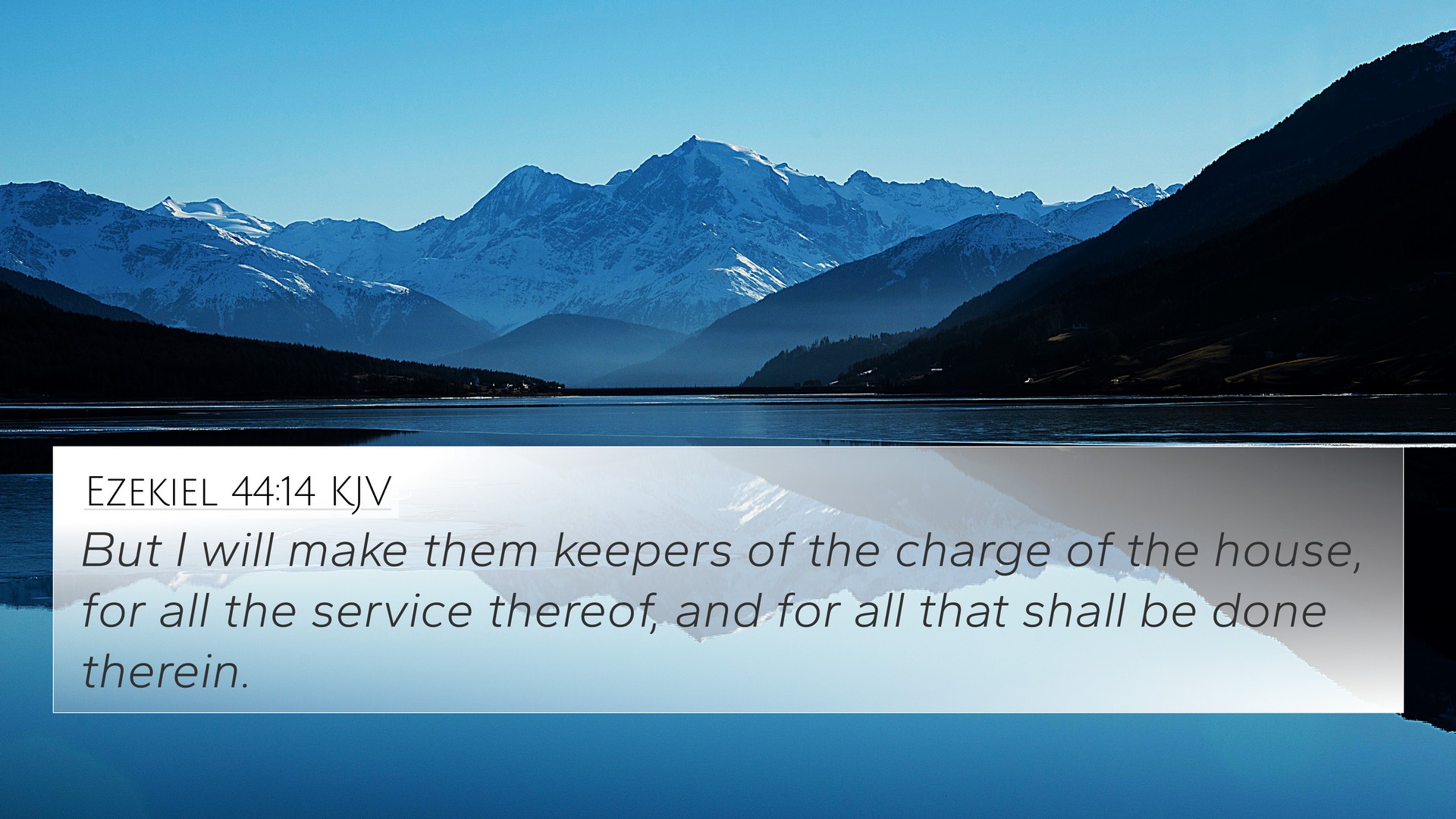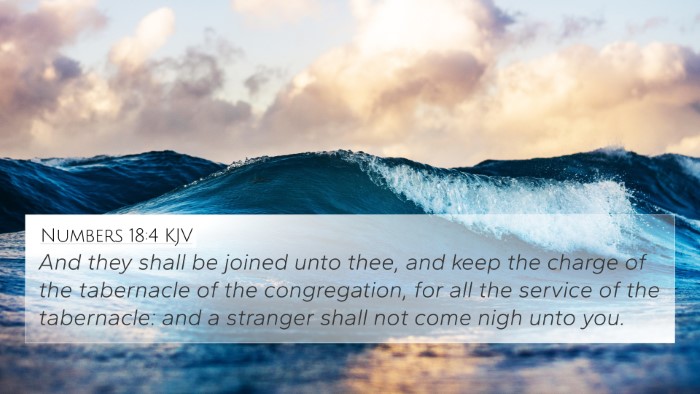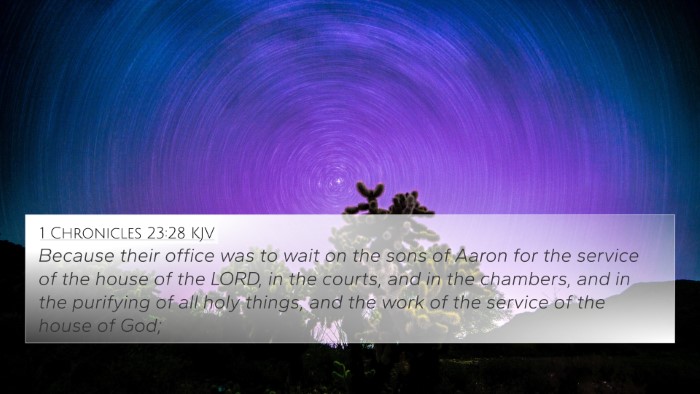Ezekiel 44:14 - Commentary and Meaning
Ezekiel 44:14 states, "Yet I will make them keepers of the charge of the house, for all the service thereof, and for all that shall be done therein." This verse highlights a significant transition in the roles and responsibilities of the Levitical priests following the exile of the Israelites. Below is a synthesis of insights from public domain commentaries to provide a comprehensive understanding of this scripture.
Interpretation and Analysis
In this verse, Ezekiel emphasizes the reinstatement and reaffirmation of the Levites' roles as keepers of the temple. The context reveals that after Israel's disobedience, particularly through idolatry, the Levitical priesthood faced severe penalties; however, grace and restoration are themes prevalent in God's covenant relationship with His people.
Key Themes in Ezekiel 44:14
- Restoration of the Priesthood: Matthew Henry notes that despite the past failures, God shows mercy by allowing a remnant of the Levites to serve in the temple once again.
- Divine Authority: Albert Barnes emphasizes that it is God who appoints positions of service, reaffirming that priestly duties are sacred and are meant to be upheld with reverence.
- Charge of the House: Adam Clarke elaborates on the meaning of being a "keeper" as a responsibility not merely of observation but of active participation in spiritual worship and service.
Bible Verse Cross-References
To enhance the understanding of Ezekiel 44:14, we can examine several other passages that bear thematic and contextual similarities. Here are 7-10 related Bible cross-references that enrich the analysis:
- Numbers 3:6-10: This passage delineates the responsibilities assigned to the Levites, underscoring their priestly duties throughout Israel's history.
- Ezekiel 42:13: Discusses the inner court's holiness, emphasizing the sacredness of the temple and the necessity of qualified individuals leading its services.
- Hebrews 5:1-4: Relates to the priesthood in the New Testament, highlighting that priests are chosen from among the people to represent them before God.
- Malachi 2:7: Describes the importance of the priest's role in preserving knowledge and teaching the Law; a theme echoed in Ezekiel's call for the Levites.
- Jeremiah 33:18: Promises the preservation of the Levitical priesthood, indicating God's faithfulness to His covenant and appointment.
- 1 Peter 2:9: Introduces the concept of believers being a royal priesthood, showing a direct connection to the idea of spiritual service akin to that of the Levites.
- Isaiah 61:6: Highlights God's calling of His people as priests, advocating for a greater interpretation of priestly duties in the Kingdom.
- Ephesians 2:19-22: Discusses the household of God, correlating the new temple made of believers to the Levite's role in the physical temple.
- Revelation 1:6: Declares that believers are made into a kingdom of priests, reinforcing the ongoing relevance of priestly duties as described in Ezekiel.
Thematic Bible Verse Connections
Thematic connections among these verses illustrate how the role of the Levites as keepers of the temple is a precursor to the New Testament understanding of believers as priests in Christ. The concept of representing the people before God persists through both Old and New Testament scriptures.
Cross-Referencing Biblical Texts
Understanding the connections between these scriptures allows for a deeper grasp of the overarching narrative of redemption and restoration woven throughout the Bible. Cross-referencing provides tools for Bible study that unveil the unity of God’s message across different authors and time periods.
Tools for Bible Cross-Referencing
Utilizing a Bible concordance or cross-reference guide can facilitate extensive study. Here are some suggested methods for cross-referencing:
- Bible concordances for thematic searches.
- Cross-reference Bible study sessions focusing on specific books or characters.
- Utilizing digital or print resources for comprehensive cross-reference materials.
Conclusion
Ezekiel 44:14 embodies themes of restoration, servitude, and the sacred calling that continues to resonate with believers today. By engaging in comparative Bible verse analysis and inter-Biblical dialogue, we unearth profound truths about faith, service, and the divine purpose bestowed upon those who follow Him.




